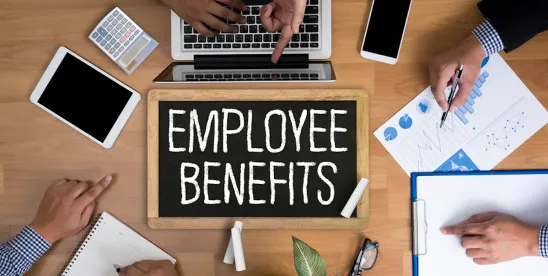On July 4, 2025, there were more than hot dogs and fireworks. President Trump signed the One Big Beautiful Bill Act (OBBB), a comprehensive law that implements several of the administration’s tax, health, defense, and energy policy initiatives.
This followed a flurry of activity earlier in the week in which the U.S. Senate narrowly voted to approve a substitute amendment to the OBBB. The Senate version resembles a prior version of the bill approved by the U.S. House of Representatives on May 22, 2025, but with certain key changes. All citations in this post are to the Senate provisions.
Below, we provide a summary of this legislation’s notable provisions that will directly impact employee benefits and executive compensation.
However, the law is sweeping and broader than the provisions noted here. Other, more contentious provisions in the OBBB, related to Medicaid funding cuts and efforts to decrease enrollment in the Affordable Care Act Marketplace Exchange plans could indirectly cause increased enrollment in employer-sponsored plans.
What’s Not Changing?
The final OBBB does not change or eliminate any tax incentives for employer-provided health coverage or retirement savings plans.
Health Policy – What’s Changing?
Some of the proposed health and welfare changes in the House version of the OBBB included multiple employee benefit provisions concerning Health Savings Accounts (HSAs), Individual Coverage Health Reimbursement Arrangements (ICHRAs), and Pharmacy Benefits Managers (PBMs). The Senate Finance Committee’s reconciliation tax bill made less extensive changes to these programs.
The final OBBB includes the following notable changes expanding HSAs:
Permanent Extension of Safe Harbor for Telehealth Services (Section 71306)
The final version of the OBBB contains a notable addition from the House’s version of the OBBB – a permanent extension of a recently expired safe harbor provision adopted during the COVID-19 pandemic, allowing employers to offer telehealth services on a pre-deductible basis for employees enrolled in high-deductible health plans (HDHPs) without disqualifying their HSA eligibility.
Effective Date: This change is effective retroactively for plan years beginning on or after January 1, 2025. Employers, in consultation with their insurers (if fully-insured) and third party administers (if self-funded), will need to decide whether to adopt (or reinstate) this relief for the 2025 plan year (and going forward), considering the potential cost to their plans. They will also need to communicate any changes to the employees and timely update their plan documents/summary plan descriptions.
Includes All Bronze and Catastrophic Plans Available through the Exchange as HDHPs (Section 71307)
The OBBB treats as an HDHP all Bronze and Catastrophic level plans that are available on the individual market through the Exchange. This will expand access to HSAs for those enrolled in a Bronze or Catastrophic plan, even if those plan options would not otherwise meet the standard HDHP requirements.
Effective Date: This change is effective beginning January 1, 2026.
Treatment of Direct Primary Care Service Agreements as Not Disqualifying Coverage for HSAs (Section 71308)
The final bill allows participants enrolled in an HDHP with an HSA to participate in direct primary care (DPC) benefits. These arrangements typically charge a monthly fee to cover services like office visits for acute illness or chronic conditions, which an HDHP can only cover after the deductible is met. DPC arrangements under this new provision are prohibited from providing procedures requiring the use of general anesthesia, prescription drugs other than vaccines, and laboratory services not typically administered in an ambulatory primary care setting. Historically, this has made DPCs disqualifying coverage for HSAs. The final OBBB makes DPCs compatible with HSAs provided that the DPC monthly fees do not exceed $150/month for individuals and $300/month for family coverage, adjusted annually for inflation. The OBBB also provides that the DPC fees are a qualified medical expense that can be paid tax-free from HSAs.
Effective Date: This change is effective beginning January 1, 2026.
Health Policy – What’s Not Changing?
The OBBB removes multiple health provisions initially contained in the House’s version, including:
HSAs/IHCRAs
The removal of all HSA and ICHRA related provisions (other than those noted above). While the version of the OBBB that passed in the House would have expanded HSA eligibility, increased contribution limits, removed certain contribution restrictions, and further codified ICHRAs, these provisions are noticeably absent from the final version.
PBMs
Although contained in the initial Senate Finance Committee summary of the OBBB, provisions related to PBMs were removed from the final bill that was signed into law. These provisions included proposals to improve PBM pricing and transparency in general by prohibiting certain pricing models and requiring PBM disclosures related to compensation and contractual arrangements.
Retirement Policy – What’s Not Changing?
The final version of the OBBB did not include any significant changes regarding retirement plans.
Dependent Care Assistance Programs, Childcare, and Education Policy – What’s Changing?
The final OBBB includes the following:
Dependent Care Assistance Program Limit Increases to $7,500 But Will Not Be Indexed for Inflation (Section 70404)
Since 1986, the dependent care flexible spending account (FSA) limit has been set at $5,000 without indexing for inflation (except for one year during COVID). After almost 40 years, the dependent care FSA limit is increased to $7,500 ($3,750 for married couples filing separately). This amount is not indexed for inflation. Employers that want to amend their plans for the higher limit will need to work with their third party administrators, update participant open enrollment and other communications, as well as consider the impact of any amendment on passing the notoriously difficult to pass 55% Average Benefits Test.
Effective Date: This change is effective for plan years on or after January 1, 2026.
Student Loan Repayment Assistance Made Permanent and Will Be Indexed for Inflation (Section 70412)
The OBBB makes permanent a provision that allows employers to make student loan repayments (up to $5,250) for employees on a tax-favored basis under qualified educational assistance programs under Internal Revenue Code Section 127. Beginning in 2026, the $5,250 qualified educational assistance limit, which has been in place since 1979, will be indexed for inflation.
Effective Date: This change is effective beginning on January 1, 2026.
“Trump Accounts” and Trump Accounts Contribution Pilot Program (Sections 70204 and 70204)
The OBBB create a new type of tax-favored account for children referred to as a “Trump Account.” The account can be established for children under the age of 18 with a contribution limit of up to $5,000 (indexed) per child annually. Trump Accounts may also be available as an employee benefit. Employers may choose to contribute up to $2,500 per year (indexed) to employees or their dependents tax-free. The investments in these accounts will grow tax-free. Employer will need to adopt a written plan document and comply with nondiscrimination rules similar to those that apply to dependent FSAs.
Effective Date: This change is effective beginning in 2026.
The OBBB establishes a pilot program under which Treasury will pay a one-time credit to the “Trump Accounts” for children born between January 1, 2025, and December 31, 2028, who are U.S. citizens and whose parents have Social Security Numbers. The federal government will contribute $1,000 to these accounts initially, with subsequent contributions allowed annually on a tax-favored basis.
Effective Date: This change is effective upon enactment.
Enhancement of Employer-Provided Childcare Credit (Section 70204)
The OBBB greatly expands the employer-provided childcare tax credit through (1) increasing the percentage of qualified childcare expenses from 25% to 40% (50% for eligible small businesses) and (2) raising the maximum credit from $150,000 to $500,000 per year ($600,000 for eligible small businesses). The maximum credit will also be indexed for inflation following 2026.
Effective Date: This change is effective beginning in 2026.
Bicycle Commuting Reimbursement (Section 70112) – What’s Changing?
Effective 2018 through 2025, the Tax Cuts and Jobs Act of 2017 (TCJA) repealed the bicycle commuter benefit, which allowed employers to reimburse certain bicycle commuting expenses up to $20/month tax-free. The benefit was supposed to return in 2026. OBBB has now permanently repealed this tax-free bicycle commuter benefit option. However, employers may continue to provide any form of bicycle commuting assistance on a taxable basis.
Effective Date: This change is effective beginning in 2026.
Executive Compensation (Sections 70603 and 70416) – What’s Changing?
The executive compensation provisions in the OBBB will help pay for the other provisions and:
- clarify the application of the deduction limits provided under IRC Section 162(m) (for compensation exceeding $1 million paid to certain executives) as it relates to executives of companies that are part of a controlled group or affiliated service group and who receive compensation from multiple entities of a group, and
- expand the application of the excise tax that currently applies to tax-exempt organizations with respect to the top 5 most highly compensated employees earning more than $1 million per year. The expansion makes this excise tax applicable to all current and former employees (e.g., those receiving severance and who had been employed during any tax year beginning after December 31, 2016) of tax-exempt organizations with compensation exceeding $1 million (not just the top 5 most highly compensated employees over that threshold, as is currently the case).
Effective Date: This change is effective beginning in 2026.
What’s Next
Now that the OBBB has been signed into law, employers should be ready to work with legal counsel to review their current policies and plans to ensure continuing compliance and to consider these new benefit options especially as they consider their 2026 benefit offerings.





 />i
/>i

